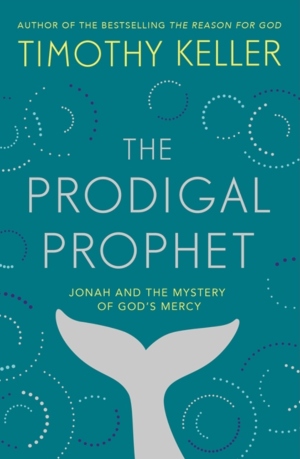The Prodigal Prophet by Timothy Keller
Keller's focus on Jonah reads well, but is too prescriptive, leaving no room for listeners to hear the voice of God
 The Prodigal Prophet - Jonah and the Mystery of God’s Mercy
The Prodigal Prophet - Jonah and the Mystery of God’s Mercy
By Timothy Keller
Hodder & Stoughton
ISBN: 9781473690509
Reviewer: Alec Gilmore
Timothy Keller writes well and begins by acknowledging that Jonah is a small book with a potential for multiple interpretations. What is it really about? He then tells us that he has preached through Jonah ‘verse by verse three times’ in his ministry, once ‘in a small blue-collar town in the south’ (USA), once to ‘several hundred young, single professionals in Manhattan’, and a third in New York City after 9/11. From there I was hoping to discover how the sermons (and even more the responses) differed, but I was to be disappointed. What we have reads more like an amalgam of them all in the form of a dozen sermons of anything from 20-50 minutes each.
To his credit he has retained something of the preacher’s tone (it reads well), there is evidence of reading and thinking (28 pages of notes and biblio, predominantly but not exclusively conservative), effective symbolism (storms and sin, for example) and no lack of contemporary life and personal situations, though this tapers off somewhat in the second half where the sermons get longer and more doctrinal.
But it is difficult to avoid a number of hesitations and reservations. This not the kind of preaching that drops hints and leaves doors open for listeners to hear the voice of God for themselves. Keller has it all, not simply buttoned up but zipped. Many in his congregations will have found it interesting, even enjoyable, but as for a lecture rather than a sermon. One of our UK college principals, shortly before his retirement, asked his wife, after sitting through very many sermons, how she judged a sermon. Her answer: ‘Does it make me want to be a better woman?‘ She would have had a thin time with this, though she would have been in no doubt as to what she ought to do. ‘Must‘ and ‘should‘ are not good preaching words.
At the end I didn’t feel I knew a great deal more about Jonah (man or book) but I was left in no doubt as to how Keller believed God dealt with such characters. And there’s the rub. How did Keller know all this about God? In the fish and the gourd ‘God orchestrated a circumstance in history to teach Jonah something he desperately needed to know’. (p 70). Did he now? And is God really ‘seeking social reform’ (then and now) through his prophet? (p 92). He may be, but where is the evidence? And when God comes ‘and begins to reason’ with Jonah, what form does the reasoning take? (p 116).
This is not to denigrate either the sermons or the book. Preaching is too fine an art for that kind of superficial judgement. No doubt many will find them helpful. Those with a less anthropomorphic view of God and Keller’s clarity about his ways may not.
Alec Gilmore is a Baptist minister
Baptist Times, 07/12/2018